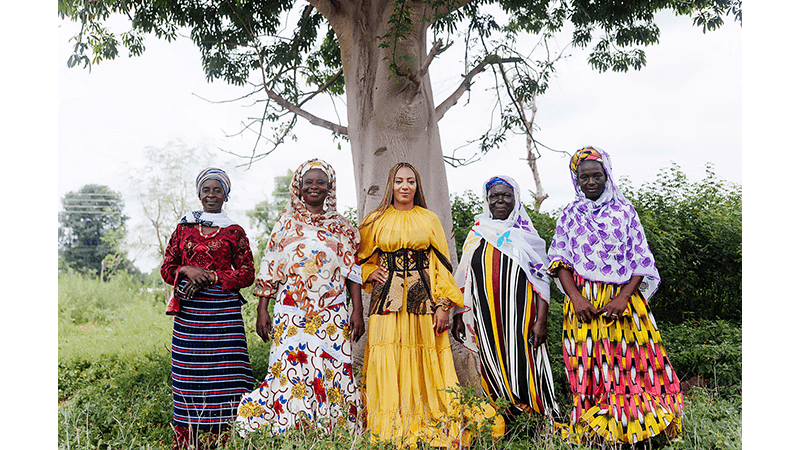The Beauty Brand Transforming The Way You Feel About Skin
From Youthforia’s ‘makeup you can sleep in’ to the new Half Magic by Euphoria’s creative director Donni Davy, the latest crop of niche Gen-Z brands are shaking the foundations of a once-traditional beauty industry. Helming this new movement is Topicals, a skin-positive brand reframing the conversation around ‘perfect skin’.
Founded by Olamide Olowe, an American Nigerian, Topicals had a clear mission to overhaul how the beauty industry treats skin issues such as acne, eczema, and hyperpigmentation. The introduction of products – Faded, a hyperpigmentation gel, and the eczema-salve Like Butter – housed in pastel tubes with bold psychedelic typography helped fans manage their conditions without shame and became a huge hit on TikTok. But it wasn’t simply the products moving the needle. When Topicals launched in 2020, Olowe became the youngest Black woman to secure over $2million in venture capital. But it took two painstaking years to do so. “We had people who truly understood us from the start, but a lot of investors need brands centring Black culture to be ‘digestible’ before they get behind it,” reflects Olowe. “[But] if they don’t spend much time in Black communities, [how] can they spot the next big thing right in front of them – especially if the concepts are very niche or involve new ways of considering what it means to be Black?”
The resurgence of the Black Lives Matter movement saw consumers and investors scrambling to support Black-owned brands. “People see the success of brands such as Fenty Beauty and value them in capitalist terms. So now they think Black-owned beauty is worthy of investment,” says Olowe. While she sees the silver lining (“When more Black-owned brands get funding and prove successful, it does help others get funding”), she questions its authenticity.
“How long will it be until the ‘movement’ drops again and people have less incentive for change? History has shown a real peak and valley trajectory for Black movements; so much of it captures the mainstream attention and then drops.” Many would argue that ‘drop’ has already begun and much of the representation we currently see is more performative than not. Despite admitting, “If I knew what I’d have to endure while creating this brand, I never would’ve embarked on this journey,” Olowe still maintains hope. “We need to do everything possible to stop that [drop] from happening.”
Hence the inspiration behind many Topicals campaigns is about occupying spaces “[women of colour] have historically been excluded from”. She explains how she and her team looked at early-2000s movies such as She’s The Man and Confessions Of A Teenage Drama Queen “and asked ourselves what would these characters look like if they were women of colour?”. This fun, unorthodox storytelling across chronic skin conditions – “every new campaign rewrites a narrative centring a community that does not typically get any credit” – is something Olowe plans to continue. “Even if they don’t directly generate sales,” she says cheerfully, “they instil a sense of occupying space.”
Ava Welsing-Kitcher is a freelance beauty editor whose work has appeared in Vogue US, Refinery29, Popsugar and Grazia, and is the former deputy beauty editor of The Sunday Times Style




